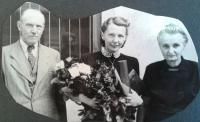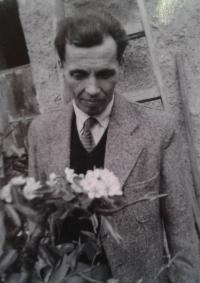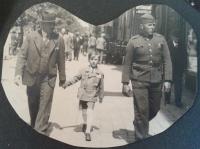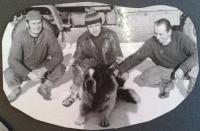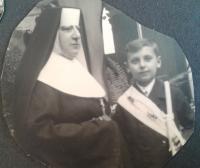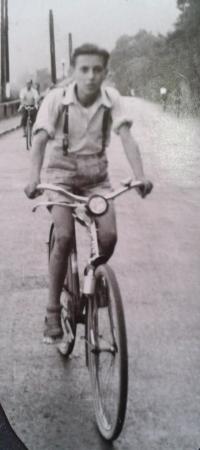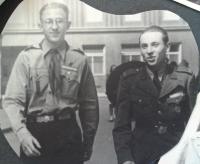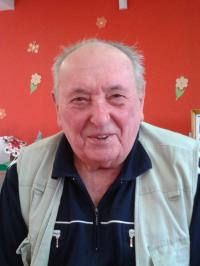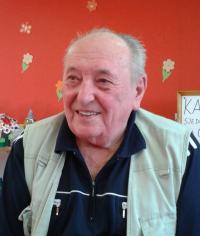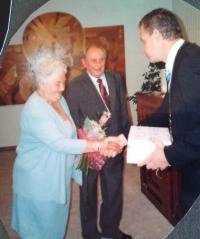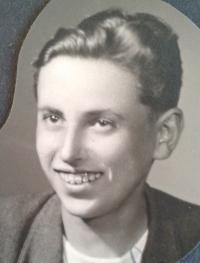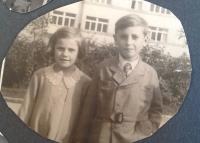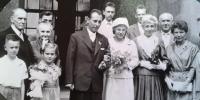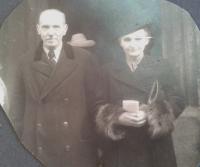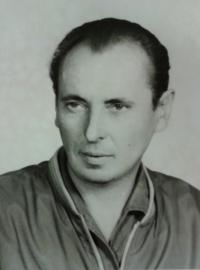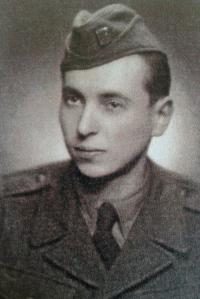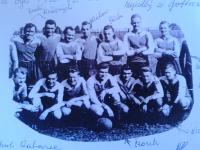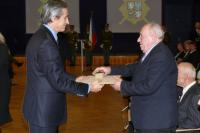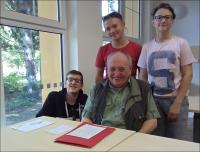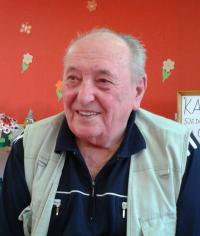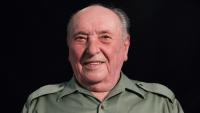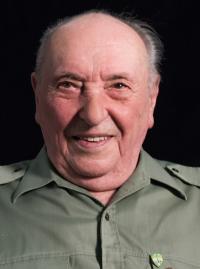Love your country, the Czechoslovak Republic, and serve it at all times

Download image
Miroslav Soukup was born 17 May, 1928 in Prague. He went to private elementary school U Voršilek, where he also attended the real gymnasium in Truhlářská street in Prague 2. In his childhood he shortly attended an organisation Orel and in 1934 became an active member of the Scaut. He witnessed an arrival of the German army to Prague. In 1944 he was forced to labour together with his whole class in CKD Karlin; after three months was moved to Technische Nothilfe in Vienna for clearing work and then to Olomouc to dig trenches. At Easter 1945 he ran away together with sixty boys from units, the witness got to Prague and then to his relatives in Příbramsko region. Here he witnessed the last fights of the WW2 near Milín. After was he dedicated himself to repatriation of political prisoners within scauting organisation. In 1946 he and his schoolmates actively participated in taking over the property after displaced Germans in the borderland; first in Větřní and then in Teplá near Mariánské Lázně. He actively joined anti-communist resistance in an illegal group Truth prevails. He was arrested in December 1948 and in May 1949 sentenced to six months in prison, which he spent in custody. After releasing he was trying to get a job in vain, during 1950-1952 served at the auxiliary military troops. After his obligatory military service was over he started working for a company Posista (later Vojenské stavby), where he remained in various departments until retirement. Since 1994 he has been leading a regional club PTP. In October 2014 he was awarded by the ministry of defense for participation in the resistance and struggle against communism.
